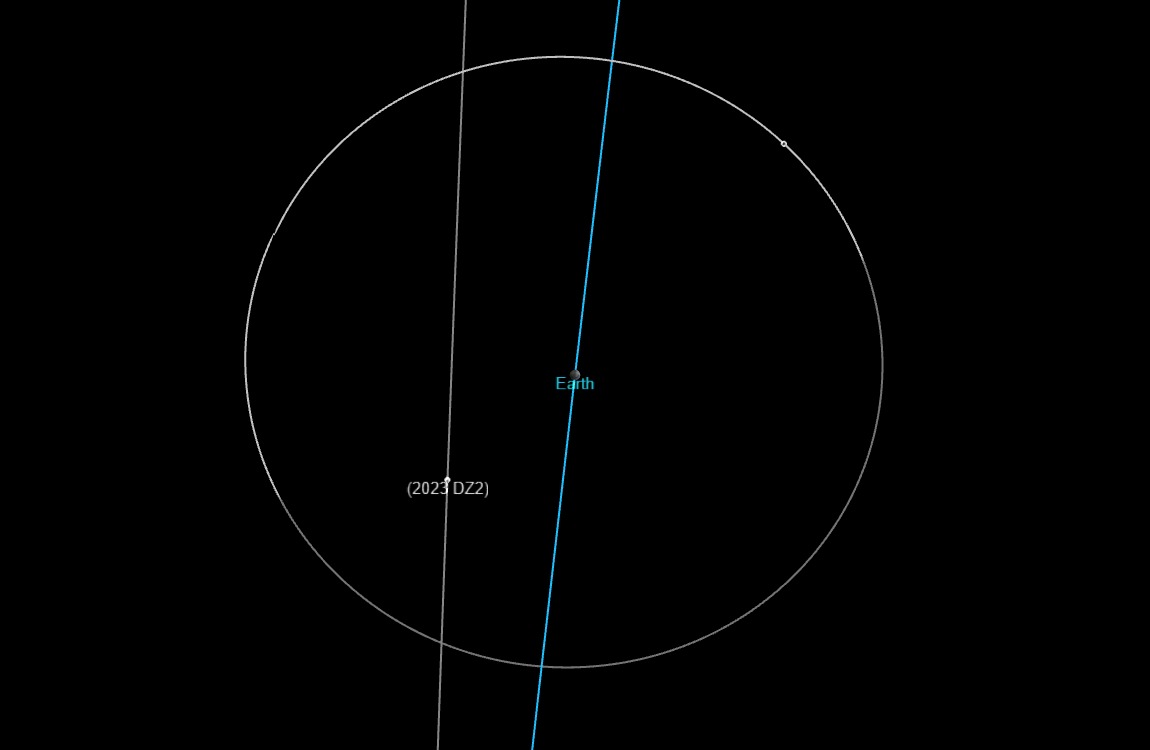A 200-foot asteroid discovered earlier this year will pass Earth at a distance closer than the Moon later this month. The asteroid, labeled 2023 DZ2, is set to fly by our planet on March 25. When it happens, the asteroid’s March flyby will occur at roughly half the distance the Moon orbits our planet, making for a close call, cosmically speaking.
This isn’t the first asteroid that has ever come close to Earth. A falling asteroid lit up the English Channel in February. However, this is one of the closest asteroids that will pass by our blue marble of a planet. The asteroid 2023 DZ2 will perform its March flyby at 0.5 lunar distance from Earth’s surface. This relative closeness will let observers view the asteroid through telescopes with a larger diameter.

When this 210-foot asteroid completes its March flyby of our planet, it will travel roughly 17,426 miles per hour (28,044 km/h). That number might seem significant, but it is relatively slow for an asteroid compared to other asteroids that have completed flybys of our planet. EarthSky.org says that the asteroid’s distance will make it appear as a slow-moving star in smaller telescopes.
Astronomers are paying careful attention to the asteroid to get a better idea of its orbit, which is currently estimated to complete a circuit around the Sun every 3.17 years. It’s also possible that estimates of the asteroid’s size will grow smaller as more precise measurements are captured during the asteroid’s March flyby of Earth.
Some also say there is a very small impact risk in 2026. However, future analysis will help determine whether that risk is real, as with all newly discovered asteroids. While this asteroid will complete its March flyby of Earth without much incident, astronomers are concerned about another newly discovered asteroid. This asteroid, known as 2023DW, could impact Earth in 2046.
Much like 2023 DZ2, the full orbit for 2023DW will become clearer once astronomers have more observations of the asteroid. You’ll be able to watch the March flyby on the Virtual Telescope Project (VTP).







